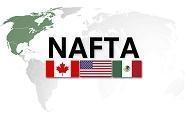Government/Policy

January 30, 2018
Sixth Round of NAFTA Ends With Body Blows from Lighthizer
Written by Sandy Williams
The sixth round of NAFTA talks closed on Monday with the U.S. Trade Representative rejecting proposals by Canada and lamenting the slow pace of the renegotiations.
“We finally began to discuss the core issues, so this round was a step forward,” Robert Lighthizer said. “But we are progressing very slowly. We owe it to our citizens, who are operating in a state of uncertainty, to move much faster.”
A proposal by Canada attempting to offer a path to the 85 percent North American automotive content requested by the U.S. was dismissed by the trade representative.
Canada negotiators proposed broadening the definition of what counts toward NAFTA content to include areas where the U.S dominates such as intellectual property and research.
Lighthizer called the “presumed compromise” vague and without specific numbers.
“We find that the automobile rules-of-origin idea that was presented, when analyzed, may actually lead to less regional content than we have now, fewer jobs in the United States, Canada and most likely Mexico,” he said. “This is the opposite of what we were trying to do.”
“I think there is something to be said for the fact that they came up with something,” said Lighthizer. “But it is something that would make the auto companies, I’m sure … wildly happy because they bring in more stuff from China and put it in cars.”
Canada also offered a compromise to the United States’ request for a five-year sunset clause that would institute a review process where amendments to the agreement could be recommended.
A suggestion put forward by Canada for settling disputes between investors and member states received a blistering response by Lighthizer without offering details of the proposal.
“And in another proposal Canada reserved the right to treat the United States and Mexico even worse than other countries if they enter into future agreements,” said Lighthizer.“Those other countries may in fact even include China if there’s an agreement between China and [Canada]. This proposal, I think if the United States had made it, would be dubbed a ‘poison pill.’ We did not make it, though. Obviously this is unacceptable to us and my guess is it is to the Mexican side, also.”
Lighthizer also blasted the trade action brought by Canada to the WTO challenging U.S. trade remedy practices. Canada alleges that six measures used by the U.S. related to antidumping and countervailing duty investigations violate WTO rules.
“It constitutes a massive attack on all of our trade laws. If it were successful, it would lead to more Chinese imports into the United States and likely fewer Canadian goods being sold in our market,” said Lighthizer.
He continued, “Of course, we view this case as frivolous, but it does make one wonder if all parties are truly committed to mutually beneficial trade. It also underscores why so many of us are concerned about binding dispute arbitration. What sovereign nation would trust to arbitrators or the flip of a coin their entire defense against unfair trade?”
In closing remarks, Canadian Minister Chyrstia Freeland sparred data with Lighthizer, refuting the trade representative’s claim that Canada has an $87 billion trade surplus with the U.S., presenting her figures from the U.S. Bureau of Economic Analysis stating that Canada instead has an $8 billion deficit in overall trade with the U.S. Freeland later told reporters that “the negotiating process is…always dramatic.”
The negotiations wrapped up with closure on anti-corruption measures, and officials said the negotiators were close to finalizing agreements on telecommunications, sanitary measures for the agriculture industry and technical barriers to trade.
Contentious proposals by the U.S. on rules of automotive origin, dispute settlement and the sunset clause continue to stall negotiations. The next round of talks is scheduled for Mexico City on Feb. 26.
At the World Economic Forum in Davos, President Trump continued to be vague about whether NAFTA is headed for termination. During a CNBC interview, Trump said there is a “good chance” the deal will be renegotiated, but he added, “I may terminate NAFTA, I may not. We’ll see what happens.”







